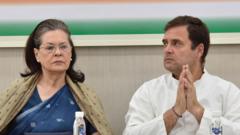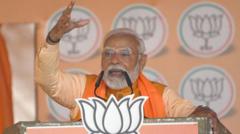The death of a 10-year-old girl from a rape incident has sparked fierce outrage across India, with claims that medical treatment delays contributed to her demise. The girl passed away at the Patna Medical College and Hospital (PMCH) on Sunday, following an alleged four-hour wait in an ambulance before being admitted. Her uncle accused hospital staff of negligence, but PMCH officials have dismissed these claims as unfounded.
India's Outrage After Death of 10-Year-Old Rape Victim Due to Alleged Medical Negligence

India's Outrage After Death of 10-Year-Old Rape Victim Due to Alleged Medical Negligence
The tragic death of a 10-year-old rape victim in Bihar, India, has ignited nationwide anger, highlighting significant concerns over healthcare inadequacies and government accountability.
The victim, a member of the marginalized Dalit community, was attacked on May 26, reportedly by a neighbor. After various treatments, she was referred to PMCH for critical surgery. However, her family faced difficulties in securing timely admission. This incident has prompted criticism from the National Human Rights Commission and sparked protests from opposition leaders, calling attention to the dilapidated state of medical infrastructure in Bihar and demanding accountability from the state government. As the political landscape heats up ahead of upcoming elections, the case not only brings light to healthcare issues but also underscores the persistent challenges facing marginalized communities in India.
The outcry reflects broader systemic dysfunction, with leaders advocating for not just immediate justice but comprehensive reforms in Bihar's healthcare system to prevent future tragedies.
In the days following this tragedy, the issue has dominated headlines, drawing a potent mixture of grief and demands for accountability. With the next state assembly elections on the horizon, this situation could have lasting political implications as Bihar's government faces scrutiny over its management of healthcare and commitment to protecting its most vulnerable citizens.
The outcry reflects broader systemic dysfunction, with leaders advocating for not just immediate justice but comprehensive reforms in Bihar's healthcare system to prevent future tragedies.
In the days following this tragedy, the issue has dominated headlines, drawing a potent mixture of grief and demands for accountability. With the next state assembly elections on the horizon, this situation could have lasting political implications as Bihar's government faces scrutiny over its management of healthcare and commitment to protecting its most vulnerable citizens.


















